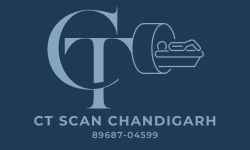FAQs about CT Pulmonary Angiography (CTPA) in Chandigarh CHD
What is a CT Pulmonary Angiography (CTPA)?
CT Pulmonary Angiography (CTPA) is a specialized imaging test that utilizes computed tomography to visualize the blood vessels in your lungs. This procedure is particularly useful for diagnosing conditions such as pulmonary embolism, which is a blockage in one of the pulmonary arteries in your lungs, usually caused by blood clots. During the scan, a contrast dye is injected into a vein to enhance the images and allow for better visualization of blood flow.
Why would my doctor recommend a CTPA?
A doctor may recommend a CTPA if you exhibit symptoms such as shortness of breath, unexplained chest pain, rapid heart rate, or if you have a history of risk factors for blood clots. It is a crucial diagnostic tool that helps in assessing the cause of these symptoms and the overall status of your pulmonary circulation. Additionally, it can help in planning for further treatment options if a pulmonary embolism or other vascular conditions are detected.
How should I prepare for a CTPA?
Preparing for a CTPA typically involves the following steps: 1. Inform your doctor about any allergies, especially to iodine-based contrast materials, and any medications you are currently taking. 2. You might be asked to fast for a few hours before the test to ensure optimal imaging results. 3. Wear loose-fitting clothing on the day of your scan and avoid wearing any metallic items like jewelry or watches.
Is CTPA safe?
Yes, CTPA is considered safe for most patients. The benefits of accurate diagnosis greatly outweigh the risks involved. However, like any medical procedure, it comes with some risks. These may include allergic reactions to the contrast dye, kidney damage in individuals with pre-existing kidney conditions, and exposure to radiation. Your healthcare provider will discuss these risks with you beforehand to ensure you are fully informed.
How long does a CTPA take?
The actual scan for CTPA usually takes about 10 to 30 minutes. However, you may need to allow additional time for preparation and post-scan recovery, especially if you are receiving contrast. The entire appointment may take up to an hour.

